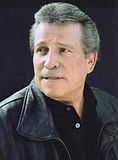
Johnny Williams has played in blues, country, soul, rock, r&b, and jazz veins, building up regular followings in clubs in his native Texas during the 1970s, and is best known for his hit single Long Black Veil. He now writes and records.
Johnny very kindly agreed to answer a few questions about his career, and how he came to meet, work, and be influenced by his friends and mentors Joe Tex and Austin bluesman Henry "Blue Boy" Hubbard.
In this part of the interview, Johnny Williams describes how he came to meet Joe Arrington Jr, or Joe Tex.
He didn't have far to go - Johnny actually grew up next door to Joe, his first major musical influence:
"Joe's mother, Cherry Sue, was a maid for the couple who lived next door to my house. They were one of the more affluent families that lived in Baytown at that time. It may have been called Goose Creek at that time. I can't remember what year the name was changed from Goose Creek to Baytown. They, the Sanders owned Culpepper Furniture Company. Anyway they had living quarters for their help and Cherry Sue lived there on the premises. Actually the maid's quarters was attached to the house. Joe would periodically stay there with his mother and that's when I met him and go to know him. I don't know exactly how old I was but I could not have been much older than 12, 13 or 14 years old...
...When we were very young - he was 4 to 5 years older - we played lots of games, mostly some kind of ball games. I heard a lot of his songs and ideas as I was growing up. He would come by our house when he was in jr. high, entertain us by singing, playing the piano and telling jokes. Joe was extremely funny. He entertained all of Baytown while in high school."
Joe's father left when he was young. I wondered what Joe's mother, was like:
"Real loving and real sweet and Joe idolized her."
Baytown is now a suburb of Houston, but back in the late 50s, it was still a small town, originally called Goose Creek. Johnny remembers what it was like to grow up there:
"When Joe and I grew up in Baytown the population was around 30,000 people. We hung out mostly in pool halls, drive-in hamburger joints, and going to dances at school sponsored hangouts. We had a dance hall called the Quack Shack because our school mascot was a gander. However when Joe and I were growing up, Baytown was not integrated. Joe went to Carver High, a totally black school. Joe and I were long gone from Baytown when they finally integrated the school district."
I asked Johnny whether there was much interaction between black and white people in the town, or was his friendship with Joe quite rare?
"It was very rare. Blacks still had to sit in the back of the bus, couldn’t eat in white restaurants and had there own public drinking fountain."
Did Johnny remember any particular songs that Joe would play to him, or that he would spin on the radio?
"I don’t remember any particular song or songs. The only things I do remember are some of the little sayings that he later injected into his recordings. For example, if we were playing baseball and Joe hit a homerun he might touch home plate and say, “If Grandma could see me now.” I later heard him say that on one of his recordings. Joe was a natural born comedian and he would perform for 2 or 2,000 people. It would all depend on his mood. And he was moody. Joe was a thinker. He was a philosopher and he started writing a book before he got famous. I don’t know whatever happened to that book but I think the injustice of racism bothered him profoundly."
What were the major hang outs for young people in the town, and what venues were there to encounter music?
"We encountered music everywhere. The radio and jukeboxes mostly but they did have concerts in Houston at the Houston Coliseum. There we could catch all the popular acts at the time, James Brown, Johnny Ace, The Spiders, whoever was hot at the time. When I got into music and had my first hit record, Long Black Veil, I made appearances there from time to time with other acts like Johnny Winter, Roy Head, B.J. Thomas, Kenny Rogers, Mickey Gilley, all the well-known artist from this area. One interesting note: When I was growing up in Baytown at that time there were only two people in the entire city that owned a guitar. When I came back from college, there were about 5 kids on my block that owned guitars."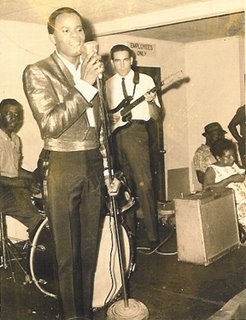 While studying at the University of Texas, Williams hung around with Joe, who by then was periodically working the Austin music scene...
While studying at the University of Texas, Williams hung around with Joe, who by then was periodically working the Austin music scene..."Before he made it big, we played a lot of small towns in that area. He didn't really need me in his band but I would go with him and play what little guitar I knew. When he wasn't performing we would spend hours together at his motel listening to music, hanging out and just having fun. He would stay in Austin 2 or 3 weeks; leave; return 6 months later and we'd do it again. My first trip to Nashville was because of Joe ... Joe Tex was a huge influence and I learned a great deal from him."
I asked Johnny how he got on with the band and life on tour:
"I remember Joe’s band, and you’ve got to keep in mind that this was before he got famous, as being extremely irresponsible. That was the antithesis of Joe’s personality. He would get so irritated with them. They would show up for a TV performance or a gig and forget to bring guitar picks and usually didn’t say anything about it until it was time to go on. Joe was not like that. He was extremely responsible. He had his act together. But again that was before he made it big. I never worked with him after he had his first hit which was Hold On To What You’ve Got."
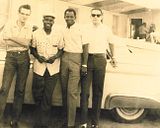
I wondered whether there had been any problems working in a racially-integrated band at that time:
"I only had a problem one time and that was in Taylor, Texas. I got put in jail ostensibly for drinking a beer after hours. At that time you could not drink beer after twelve midnight. I wasn’t drinking. I was using it to put ashes in. I was smoking a cigar. However, when I got put in the squad car the first thing they asked me was, “What are you doing hanging out with a bunch of niggers. That was the real reason I got put in jail. Joe came and bailed me out. I was only in there for a couple of hours. Other than that one instance, I never had a problem. I was living in Austin, Texas at the time and it was extremely integrated when it came to clubs and music. There was a place called Charlie’s Playhouse where all the university kids went to dance and it was integrated. I never saw a problem there. The blacks were extremely friendly. There was no sixth street at that time."
What was the best moment of that first tour for you?
"Appearing with George Jones on George Jones Day in Beaumont, Texas was probably the first big thrill I experienced when I went on tour. George took me to his house and I got to hang out with him and his band. That was exciting at the time."
I asked what Johnny remembers about Joe the most?
"How gifted he was as an entertainer, how magnetic he was, how friendly he was and how much talent he had in so many ways. He was truly a remarkable person...
... Joe was one of the best entertainers I’ve ever seen. He was a true entertainer, a Sammy Davis type. He entertained the people, with comedy, dancing and music. He was fabulous in my eyes. Joe could have been a great stand-up comedian. He was magnetic. He had that intangible quality that people gravitate towards...
...We remained friends until he died at age 49. The last time I saw Joe I played in a foursome in an Austin golf tournament with him, my sister Marian, and Darryl Royal. At that time Joe suggested I record some of his songs. I've recorded two and plan to do more. "
Johnny Williams has recorded a couple of Joe's songs, You Got What It Takes and I Want To (Do Everything For You), on his new CD Johnny Williams: Volume One , which is available to buy at Johnny Williams online store. Check out the sample streams at his website or at CD Baby.
Brown Eyed Handsome Man would like to thank Johnny Williams for his time and for the fascinating memories that he has shared in this interview. Invaluable information and photos kindly provided by Johnny Williams himself, and with permission from the Johnny Williams' website.


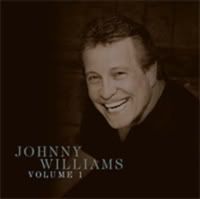

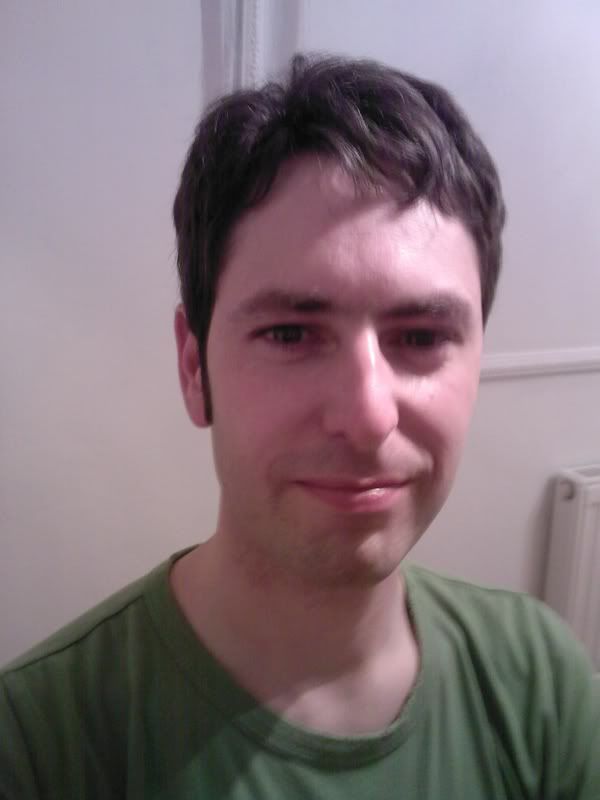

1 comment:
Post a Comment